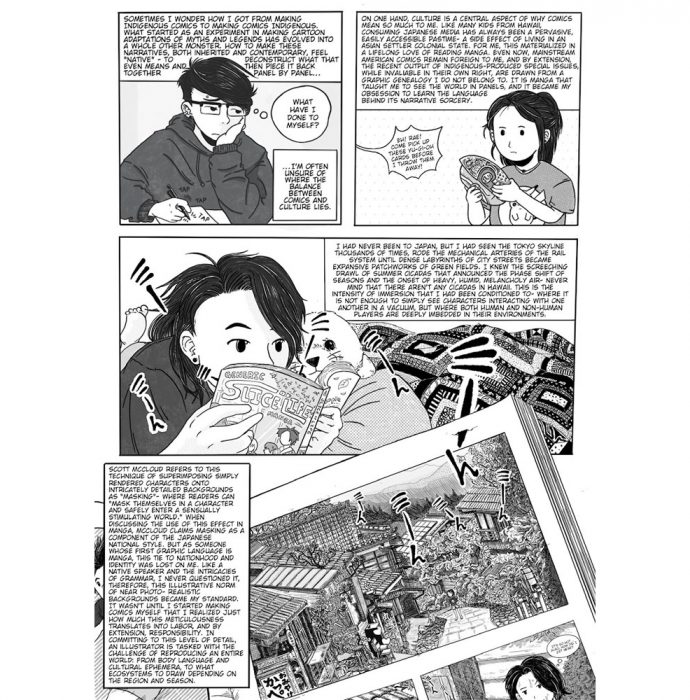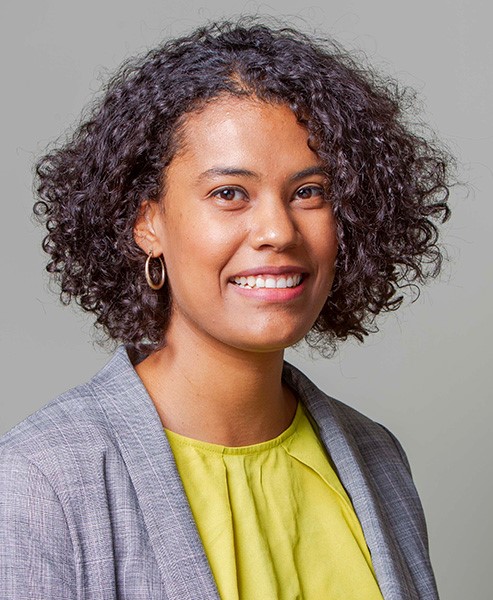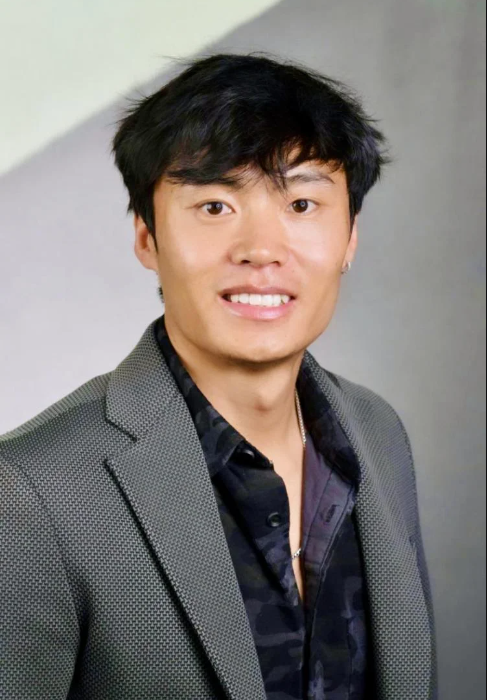The Mellon/ACLS Dissertation Fellowship Program supports doctoral students in the humanities and interpretive social sciences as they pursue bold and innovative approaches to dissertation research. The fellowships are designed to intervene at the formative stage of dissertation development, before writing is advanced, and provide time and support for emerging scholars’ innovative approaches to dissertation research.
Learn about the pathbreaking research methods, project formats, and areas of inquiry that four of the 45 inaugural Mellon/ACLS Dissertation Innovation Fellows are pursuing below. Applications are open for 2024 fellowships now through October 25, 2023, 9:00 PM EDT.
Carine Schermann F’23, Florida State University
Carine Schermann’s research is aimed at understanding representations of Blackness through literature and art in Haiti and the Dominican Republic. Specifically, her project focuses on beasts, monsters, and supra-human beings in Haitian and Dominican imaginaries and folklores.
“Ms. Schermann is doing rich interdisciplinary and comparative work within the global French studies PhD program,” said Jeannine Murray-Román, assistant professor of French and Spanish at Florida State University, in an article from Florida State University. “Alongside her innovative approaches to research, she’s interwoven her own professional development with that of her whole cohort by creating structures for peer mentorship, workshop series, and graduate student symposia along with her peers.”
Rae Keʻala Kuruhara F’23, University of California, Los Angeles
Kuruhara’s dissertation will be in the form of a graphic novel, and will retell “The True Story of Kaluaikoolau,” an early-twentieth century oral history of a Kanaka Maoli family in Hawai’i resisting against the colonial government. Their work explores the visual language of comics and the layered storytelling experiences of Hawaiian moʻolelo, place-based storied histories. Kuruhara’s story and research was recently featured in the Daily Bruin.

At the very core of it, I know that my people were storytellers…Just because my medium is a little bit more modern or different does not mean that it’s not legitimately Indigenous or rooted in a long, long, long history.
Rae Kuruhara F’23
Left: Panels from Rae Kuruhara’s proposed graphic narrative focusing on the cultural intimacies of Indigenous histories and storytelling
Larissa A. Juip F’23, Michigan Technological University
As an Indigenous scholar, my approach to research often falls outside of the ‘norm’ for academia, so having my work recognized by Mellon/ACLS is huge in terms of validating my non-traditional approach to research.
Larissa Juip’s project seeks to show Indigenous methodologies of storywork and photovoice can be used for traditional knowledge sharing to advance inclusive, equitable heritage interpretation practices with Indigenous and Descendant communities to produce an integrated model and framework for industrial heritage sites to co-create heritage interpretation. Read more about her work in “Completing the Industrial Heritage Narrative Puzzle” from Michigan Tech.
Sanggay Tashi F’23, University of Colorado Boulder
Sanggay Tashi’s research explores how Tibetan nomads creatively assert their cultural identity amidst structural and developmental modernization. In an interview with University of Colorado Boulder, he shared how he is using his Mellon/ACLS Dissertation Innovation Fellowship to take part in comparative and collaborative research with other Indigenous communities and scholars, including Professor Ty Tengan at the University of Hawai’i at Mānoa. There, he’ll learn how to do ethical, practical, meaningful and community-based research while also participating in several community-based and community-supported projects.
“Historically, research in Tibetan studies in the West has been conducted predominantly by outsiders,” said Tashi, sharing that he grew up in a Tibetan nomadic family. “I believe that the enthusiastic support for this project is a promising sign for the future of Tibetan studies.”
Become a Mellon/ACLS Dissertation Innovation Fellow
ACLS is currently accepting applications for Mellon/ACLS Dissertation Innovation Fellowships, supporting early-stage doctoral students pursuing innovative approaches to dissertation research in the humanities and interpretive social sciences. Applications are due October 25, 2023, 9:00 PM EDT.





